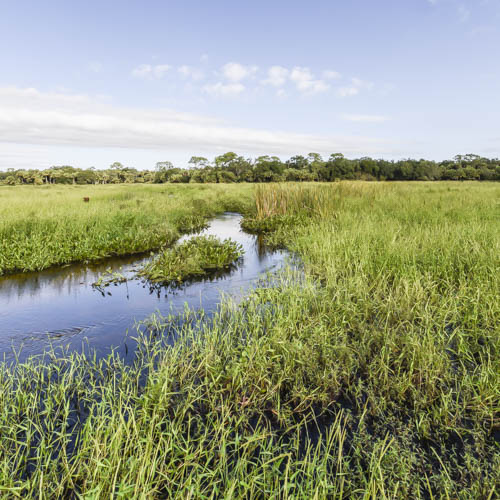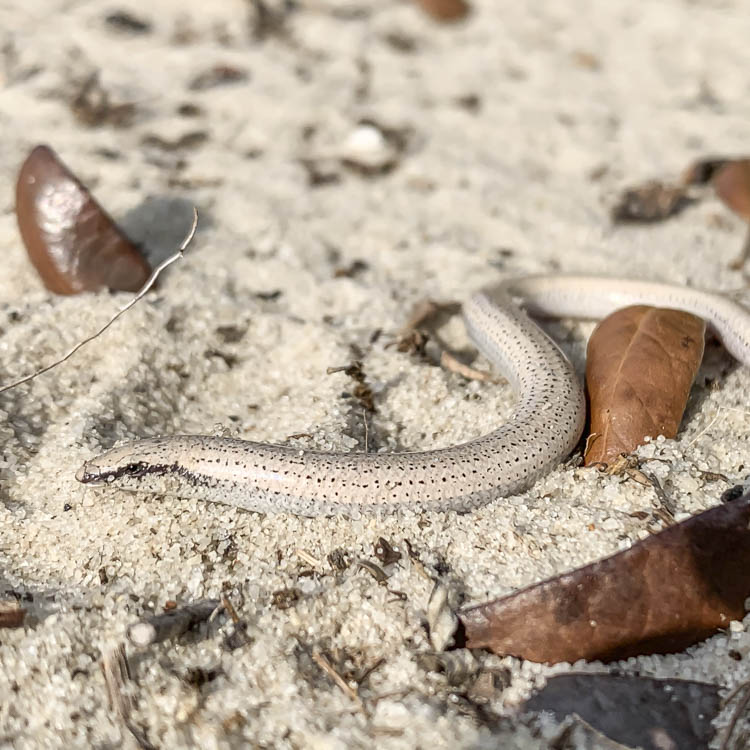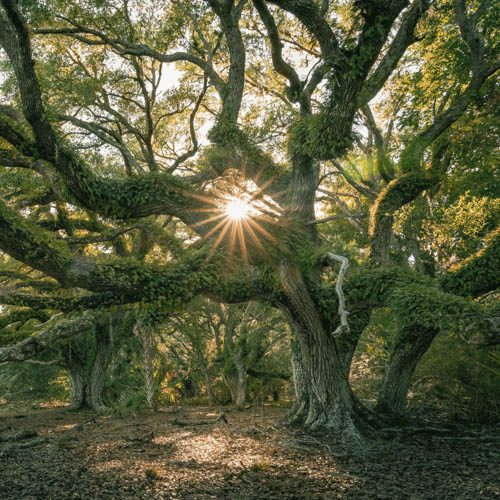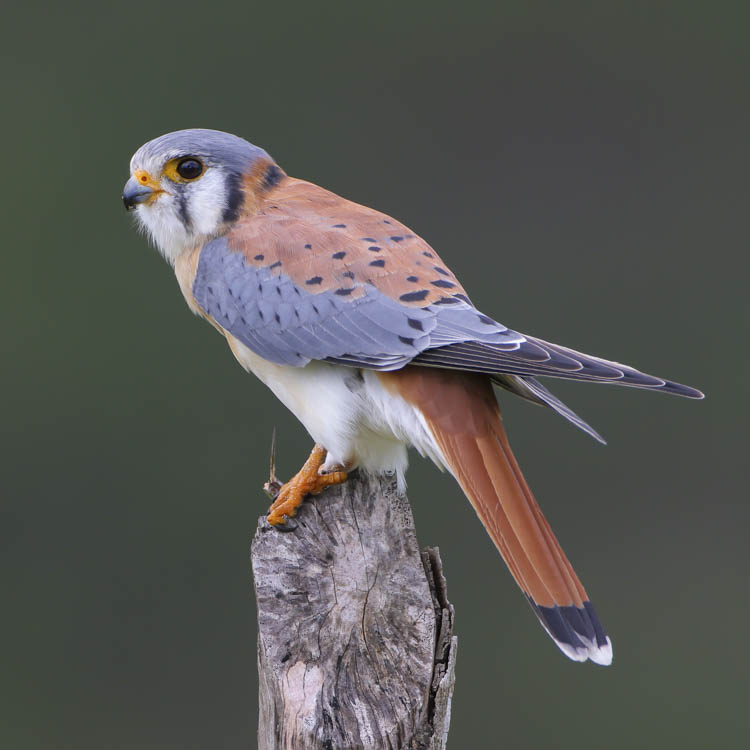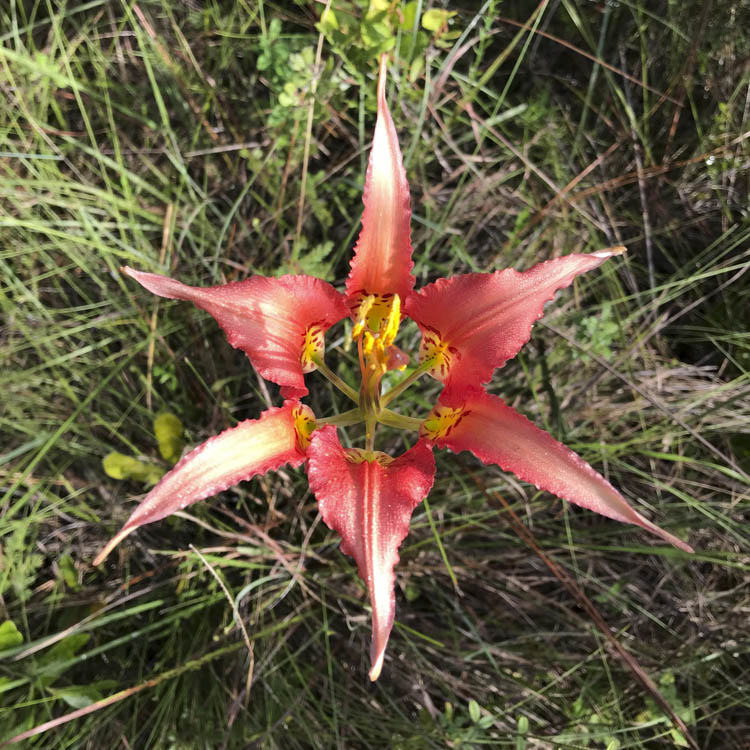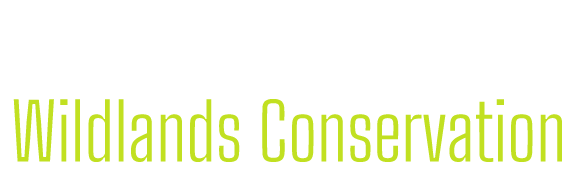David Sumpter
Executive Director
M.S. Fisheries and Wildlife Biology
Dave co-founded Wildlands Conservation, Inc. in 2003. In addition to managing the organization’s daily operations and staff, he is a wildlife biologist that specializes in land management, habitat restoration, and applied wildlife research designed to gauge the success of restoration/management strategies. He has personally authored and implemented land management plans for counties, private landowners, and the State of Florida. He was previously the land management coordinator responsible for managing all of Pinellas County’s preserves.
Dave is a wildlife biologist that has professionally specialized in land management and applied wildlife research related to land management for most of the past three decades. He co-founded PEER (Preserving the Environment through Ecological Research), Inc. with a friend back in 2003. PEER later switched its name to Wildlands Conservation, Inc. He is primarily interested in landscape-level conservation, resource management, wildlife/habitat correlations, and wildlife response to various management and restoration strategies. Prior to his specializing in these areas, Dave was the land management coordinator for Pinellas County’s preserves, including Brooker Creek Preserve, Weedon Island, Shell Key, and Mobbly Bay. Before that, he was the lead wildlife biologist with an international engineering firm; his charge was to address all listed species issues in the southeastern United States. Throughout his career, he has worked as a wildlife biologist in projects throughout the United States, including in the states of Massachusetts, Vermont, New Hampshire, Maine, New York, Pennsylvania, Virginia, North Carolina, Georgia, Louisiana, Texas, Illinois, Michigan, and New Mexico.
He has conducted hundreds of general and species-specific wildlife surveys using techniques ranging from mark and recapture (amphibians, reptiles, and small mammals) to the use of radiotelemetry (gopher tortoise and black bear).
He is a recognized expert in both bird and herpetofauna identification and habitat correlations and has been called upon several times as an expert witness by County and regional regulatory authorities. In addition to professional collaborations with local Universities and local governments, Mr. Sumpter has also been very active within the community. Dave has:
- Contracted with USFWS to map wetlands for the National Wetland Inventory in 17 states, with an emphasis in the eastern United States.
- Chair and vice-chair of the Hillsborough River Greenways Task Force (in Florida), one of seven Ecosystem Management Initiatives recognized by the state.
- Chair of the Mayor of Tampa’s Environmental Advisory Committee – during his tenure the mayor and city council agreed to adopt an Upland Habitat Protection Ordinance, which Dave eventually co-authored.
- Conservation Chair for Tampa Audubon – 17-year tenure. Mr. Sumpter continues to serve in this capacity.
- Served on Technical Advisory Committee for Charlotte Harbor National Estuarine Program
- Served as Biologist on Pasco County RESTORE Committee (committee that determines the allocation of Exxon Oil Spill recovery funding).
- Served as Wildlife Biologist overseeing the development of several linear infrastructure projects in eastern Virginia.
- Past Board Member for the Lemon Bay Conservancy (south Florida).
- Founding member (and periodic chair) of west Central Florida’s Frog Listening Network.
Email Dave at dsumpter@wildlandsconservation.org
Neal Halstead
Senior Ecologist
M.S., Ph.D. Integrative Biology
Neal is the Director of Research and Lead Instructor for our Authorized Gopher Tortoise Agent Training. A quantitative ecologist, his academic areas of expertise are in experimental design and statistical analysis, with a focus on the interaction between habitat management, community ecology, and listed species conservation. He has coordinated large research projects on herpetofaunal communities in central Florida, and participated in numerous wildlife surveys for threatened species in the state. Neal received his B.S. in Biology from the University of Wisconsin – Stevens Point, and his M.S. and Ph.D. in Integrative Biology from the University of South Florida. His Master’s research focused on the long-term use of prescribed fire as an effective management tool for herpetofauna. His dissertation work developed a conceptual framework for predicting the combined effects of multiple stressors on aquatic communities and disease dynamics. He has worked on Florida-based conservation projects since 2002 and joined Wildlands in 2015.
Email Neal at nhalstead@wildlandsconservation.org
Eric Sievers
Senior Ecologist
M.S. Biology
Eric is an ecologist with expertise in wildlife ecology, reintroduction biology, herpetology, listed species permitting, conservation biology, and geographic information systems (GIS). Previously a Gopher Tortoise Conservation Biologist with the Florida Fish and Wildlife Conservation Commission (FWC), Eric managed all gopher tortoise issues within 12 southwest Florida counties. As a survey crew leader for the Joseph W. Jones Ecological Research Center, he led gopher tortoise population surveys on state conservation lands in Florida using Line Transect Distance Sampling. Originally from the Midwest, he has also worked for both the Iowa and Minnesota Departments of Natural Resources and served as an AmeriCorps member. Eric holds a B.A. in Biology from Luther College in Iowa, and has a Graduate Certificate in GIS and a M.S. in Biology, both from Missouri State University. His graduate research focused on the reintroduction efforts of the state-threatened ornate box turtle to a U.S. Fish and Wildlife Service refuge in Illinois. Eric has served on the Executive Committee of the Gopher Tortoise Council since 2016.
Email Eric at esievers@wildlandsconservation.org
Tara Rambo
Senior Ecologist
B.S. Wildlife Ecology and Conservation
Tara is an ecologist at Wildlands Conservation. She graduated with a B.S. in Wildlife Ecology and Conservation from the University of Florida. She has worked as an IFAS Florida Bonneted Bat monitoring field technician in various preserves in southwest Florida—investigating the effect prescribed fire has on Bonneted Bat activity levels. Tara also has experience as an Ecosystem Management Technician through the Student Conservation Association AmeriCorps program at Ocala National Forest. In Ocala, Tara worked to survey and monitor listed species, control non-native invasive plants species, perform trail maintenance, and coordinate environmental outreach events.
Email Tara at trambo@wildlandsconservation.org
Victoria Franks
Ecologist/Internship Coordinator
B.S. Conservation Biology
Victoria is an ecologist and the Internship Coordinator at Wildlands Conservation. She has experience working as a research technician on our Skink Research Project and completed an internship at Wildlands. Victoria has an Associate’s Degree from Hillsborough Community College and a B.S. in Conservation Biology from USF; she will be completing a GIS certificate post-graduation.
Email Victoria at vfranks@wildlandsconservation.org
Julissa Ocampo
Ecologist
B.S. Environmental Science and Policy
Julissa is an ecologist at Wildlands Conservation. She recently graduated from the University of South Florida with a bachelor’s degree in Environmental science and policy. She got her start as an intern at USF’s water institute, conducting Lake Vegetation Index assessments and using ArcGIS to obtain Landscape Development Intensity values. She then interned at Wildlands Conservation where she received experience in upland plant identification, invasive species management, and compiled gopher tortoise relocation permit data from FWC for research purposes.
Email Julissa at jocampo@wildlandsconservation.org
Beth Davidson
Restoration Ecologist
Beth is an ecologist with expertise in restoration ecology, wetland and upland mitigation, conservation biology, and agriculture. Beth has restored over 1,000 acres of longleaf pine flatwoods and groundcover through direct seeding in the central Florida region over the past 25 years. Beth has experience in permitting upland and wetland mitigation with state, federal, and local agencies. Beth performed biological surveys during the BP Oil Spill (shorebirds), and the Sabal Trail Pipeline (gopher tortoises) in addition to other listed species work. Beth has worked in non-profit (The Nature Conservancy), industry (phosphate mining reclamation), and biological consulting before returning to her non-profit roots with Wildlands. Beth is from the Midwest, where she graduated from the University of Wisconsin-Madison with a B.S. in Zoology, where she worked in the Forest Ecology Department for Dr. Eric Kruger. Beth has served on the Coastal Plains Chapter Board for the Society of Ecological Restoration and has published in Restoration and Management Notes (under Elizabeth Wertschnig). In addition to her biology background, Beth owns and manages a small horse farm and is an equestrian sports referee.
Email Beth at bdavidson@wildlandsconservation.org
Hannah Kern
Administrative Assistant
B.A. Philosophy
Hannah is the administrative assistant at Wildlands Conservation. She has experience in both performing administrative tasks and assisting with field work, and was an intern with Wildlands throughout college. She recently earned a Bachelor’s Degree in Philosophy from the University of Tampa.
Email Hannah at hkern@wildlandsconservation.org
Kevin Love
Land Manager
A wildland manager in Florida since 1976, Kevin is accomplished in all aspects of ecological management including management planning, prescribed fire, exotics control, natural systems restoration, wildlife and habitat management, timber management, public recreation management and facilities maintenance. Kevin is a certified prescribed burn manager with over 100,000 acres of prescribed burns completed. He understands how management history affects on-site conditions and uses strategic management planning and implementation to achieve quality ecological results.
